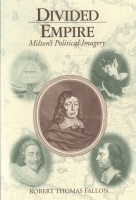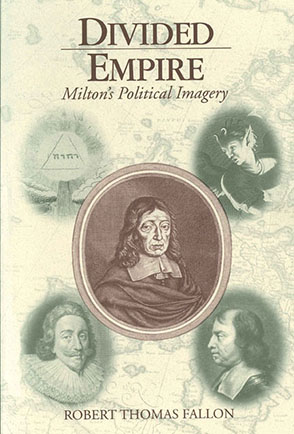Divided Empire
Milton's Political Imagery
Robert Thomas Fallon
“This is a wise and sane book that engages large and important issues, the significance of which will be felt not only by those immediately concerned with Milton and his cultural milieu but by those more generally concerned with the political implications of poetic texts.”
- Description
- Reviews
- Bio
- Subjects
Milton's works are crowded with political figures—kings, counselors, senators, soldiers, and envoys—all engaged in a comparable variety of public acts—debate, decree, diplomacy, and warfare—in a manner similar to those who exercised power on the world stage during his time in public office. Traditionally, scholars have cited this imagery for two purposes: first, to support studies of the poet's political allegiances as reflected in his prose and his life; and, second, to demonstrate that his works are sympathetic to certain ideological positions popular in present times.
Fallon argues that Paradise Lost is not a political testament, however, and to read its lines as a critique of allegiances and ideologies outside the work is limit the range and scope of critical inquiry and to miss the larger purpose of the political imagery within the poem. That imagery, the author proposes, like that of all Milton's later works, serves to illuminate the spiritual message, a vision of the human soul caught up in the struggle between vast metaphysical forces of good and evil. Fallon seeks to enlarge the range of critical inquiry by assessing the influence of personal and historical events upon art, asking, as he puts it, "not what the poetry says about the events, but what the events say about the poetry." Divided Empire probes, not Milton's judgment on his sources, but the use he made of them.
“This is a wise and sane book that engages large and important issues, the significance of which will be felt not only by those immediately concerned with Milton and his cultural milieu but by those more generally concerned with the political implications of poetic texts.”
Robert T. Fallon is retired professor of English at LaSalle University. He is the author of Milton in Government (Penn State, 1993), which was co-winner of the 1993 James Holly Hanford Award of the Milton Society of America, and Captain or Colonel: The Soldier in Milton's Life and Art (1984).
Mailing List
Subscribe to our mailing list and be notified about new titles, journals and catalogs.




